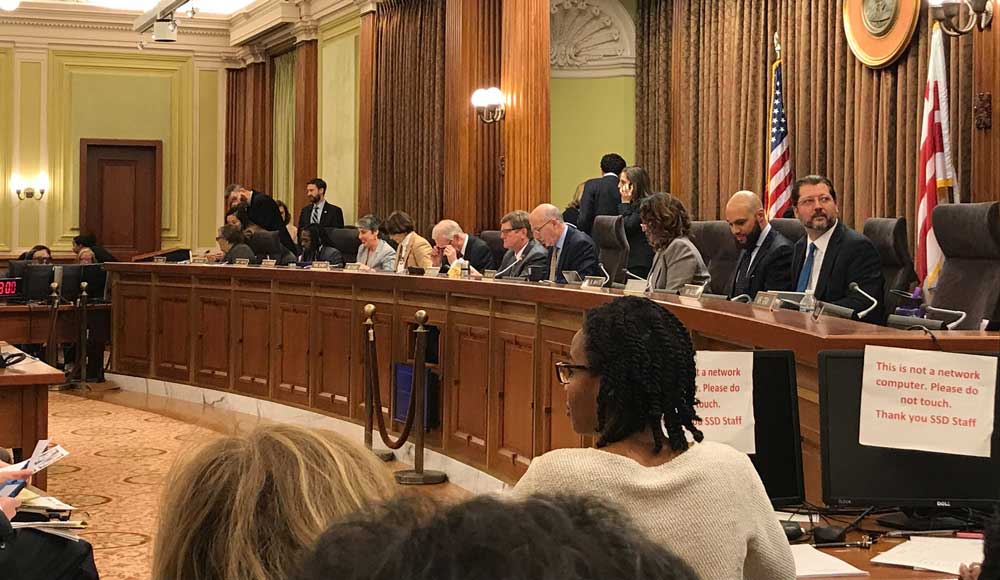On March 7, the D.C. Council voted to exempt single-family homes from the controversial Tenant Opportunity to Purchase Act. Since 1980, TOPA has granted renters the right of first refusal when the owner of their unit or home decides to sell.
Tenants have 30 days to provide a written statement of intent to purchase the property. If no statement is provided, the landowner can legally sell to others. If a tenant offer is provided, the tenant has a minimum of 60 days to negotiate the sale with the landowner.
The act’s intent was to prevent displacement, according to At-Large Councilmember Anita Bonds, who chairs the Committee on Housing and Neighborhood Revitalization. It provides vulnerable tenants the opportunity to negotiate means of retaining affordable housing before developers have the chance to convert it to higher-end housing that the tenant could not afford.
However, an NBC 4 investigation in 2017 found a subset of “TOPA-chasing” lawyers exploiting the law to create bidding wars for tenants’ right to purchase, often driving away individual buyers and holding out for big offers from developers.
Bonds sponsored the new legislation exempting single-family homes from TOPA, along with Council Chairman Phil Mendelson, as an attempt to plug the loopholes that allow third parties to abuse it. This would affect people that rent all or part of a house, including single rooms, basements and carriage houses.
The bill received opposition from At-Large Councilmembers Brianne Nadeau and Elissa Silverman. Nadeau said she wanted to protect homeowners, but this legislation would go beyond prohibiting interference by third parties and eliminate renters’ TOPA rights entirely. She proposed instead prohibiting the sale of TOPA rights for single-family homes.
“I truly believe we must use a scalpel, not a sledgehammer, to address an issue of such great importance,” Nadeau said. She was met with disapproval from an audience composed primarily of realtors, homeowners and developers.
Nadeau and Silverman proposed an amendment to the bill which would preserve TOPA rights for long-term tenants in single-family homes who had paid rent in a home for 10 years or more. However, Mendelson said this would “recreate the problem it is trying to correct.” He cited the testimonies of several witnesses who had shared their experience with TOPA abuse, including a homeowner who, after deciding to sell her home, offered her tenant $10,000 to purchase her TOPA rights. The tenant refused the offer, saying she had received several higher bids from third parties.
Exempting single-family homes from TOPA would constitute the biggest rollback of tenants’ rights in more than a decade, according to a press release from the D.C. Tenant’s Rights Center.
“After yesterday’s hearing, our office was upset to see that council leaders are paying more attention to homeowners and realtors than tenants,” said Leigh Higgins, an attorney with the D.C. Tenant’s Rights Center. “We hope that tenants speak up and contact the council before next month’s final vote.”
Higgins said that TOPA rights can provide more time or money to support a tenant’s move. “Not all tenants can afford to buy the homes they live in, but that doesn’t mean the council should take away these rights and the opportunity to be a part of the negotiations when their homes are sold,” she said.
D.C. Council voted in favor of the legislation 10-2, with At-Large Councilmember Robert White recusing himself because his wife is in the process of selling a home. The council adopted two amendments to the legislation, introduced by committee members Mary Cheh of Ward 3 and Trayon White of Ward 8. Cheh’s amendment would require landowners to notify tenants in single-family homes three days prior to putting their property on the market so their tenants can attempt to make an offer. White’s amendment aims to make TOPA rights easier for seniors and those with disabilities to understand.
A second vote on the bill will take place on April 10; if passed it will go to Mayor Bowser’s desk to be signed into law.
Jake Maher contributed reporting.








